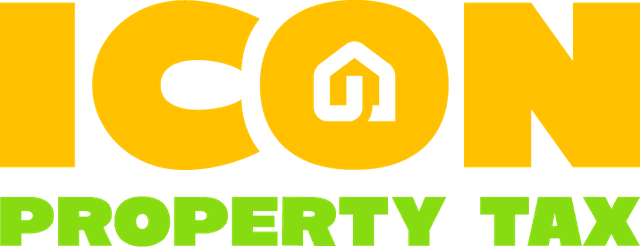DuPage County Property Tax Overview: Rates, Assessments, And Billing Cycles
July 28, 2025
Key Takeaways:
- Tax Rate Calculation: Property tax rates in DuPage County depend on local levies, not just property values.
- Assessment Cycles: Properties are reassessed every three years, but adjustments can happen sooner with major changes.
- Appeals Matter: Appealing an overassessment can significantly lower your tax bill if done properly and with supporting evidence.
Property taxes in DuPage County are not just numbers on a bill – they represent a complex web of local budgets, assessments, rates, exemptions, and deadlines. For most property owners, it’s easy to overlook the opportunities for savings or misjudge an inflated assessment. And with laws, values, and rates shifting regularly, staying on top of it all can feel like a full-time job. That’s where experience matters. Understanding how your property is assessed and how your bill is calculated isn’t just about avoiding surprises – it’s about protecting your investment.
At Icon, we’ve successfully managed and appealed over $2 billion in assessed property value across Illinois – and we’re just getting started. As industry leaders in property tax consulting, we bring unmatched expertise to homeowners and commercial property owners looking to take control of their tax burden. With a proven track record of results and a deep understanding of county-specific tax systems, we know exactly how to navigate the complex property tax landscape in places like DuPage County.
In this piece, break down how DuPage County property taxes work, including rates, assessment practices, billing cycles, and how to take action if your tax bill doesn’t seem right.
Understanding DuPage County Property Taxes
Property taxes in DuPage County play a crucial role in funding essential local services – including schools, police and fire protection, road maintenance, and libraries. Every property owner in the county is responsible for paying these taxes based on the assessed value of their property.
The property tax system in DuPage County operates under Illinois state law, but each local taxing body (like municipalities, school districts, and townships) submits its budget requirements. The combination of these budgets determines the overall tax burden for property owners within each district.
While the system can seem complex, it’s structured to ensure that property owners contribute fairly based on their property’s value and location. Understanding how assessments and rates are calculated and the billing cycle is critical to managing your responsibilities effectively.

How Property Tax Rates Are Determined In DuPage County
A single entity does not set property tax rates in DuPage County. Instead, they result from budget decisions made by multiple local taxing bodies, such as school districts, municipalities, park districts, and other public services. Each entity calculates how much funding it needs for the year and submits a levy request to the county.
Once all the levy requests are in, the DuPage County Clerk’s office calculates the total tax rate needed to meet these budgets. That rate is then applied to the equalized assessed value (EAV) of each property in the taxing district.
It’s important to understand that the tax rate does not remain fixed year to year – it can vary depending on changes in public budgets, property values, and exemptions. Even if your property’s assessed value stays the same, your tax bill can increase if the local taxing bodies increase their levy requests.
This layered system ensures that local services are adequately funded, but it also means that property owners must stay informed and review their tax bills carefully each year.
Property Assessments: What Homeowners Need To Know
In DuPage County, property assessments are the foundation of your property tax bill. The township assessor assigns every property a value based on its market value – typically what it would sell for in an open and competitive market.
Assessments in DuPage County are conducted on a three-year cycle, meaning your property is reviewed and potentially reassessed every three years. However, values can be adjusted in the interim if improvements, demolitions, or other changes significantly affect the property’s value.
The Equalized Assessed Value (EAV) is what the county actually uses to calculate your property tax. It’s derived by taking 33.33% of your property’s fair market value, then applying a state equalization factor (used to ensure assessment uniformity across counties).
It’s also important to check whether you’re eligible for exemptions. Common exemptions include:
- General Homestead Exemption
- Senior Citizen Exemption
- Disabled Persons Exemption
- Veterans Exemption
These can significantly reduce your taxable value and, in turn, your property tax bill.

Billing Cycles And Due Dates
DuPage County property taxes are billed and paid in two installments each year. This biannual billing cycle helps distribute the financial burden more evenly across the calendar year.
Here’s how the timeline generally works:
- First Installment: Typically due on June 1
- Second Installment: Typically due on September 1
Tax bills are mailed out in late April or early May, giving property owners about a month to prepare for the first payment. Paying on time is essential – late payments are subject to penalties and interest charges.
Payments can be made online, by mail, in person, or through participating banks. The DuPage County Treasurer’s Office offers automatic payment plans and online payment options for added convenience.
Suppose your mortgage company handles your property tax payments through an escrow account. In that case, they will usually make the payments directly on your behalf – but it’s still a good idea to monitor the payment status and keep copies of your bill.
Appealing Your Property Tax Assessment
If you believe your property has been overassessed in DuPage County, you have the legal right to appeal. An inflated assessment can lead to a higher tax bill than you should be paying, so it’s worth reviewing your property’s assessed value annually.
The appeal process typically involves the following steps:
Review Your Assessment Notice
Your township assessor sends a notice each year detailing your property’s assessed value. Take time to compare this value to similar properties in your neighborhood – especially those with comparable size, age, and condition. If your assessment appears significantly higher than that of similar homes, it may be worth challenging.
File An Appeal With The Board Of Review
If you suspect an overassessment, you’ll need to file an official appeal with the DuPage County Board of Review. Appeals must be filed within 30 days of the notice date, so acting promptly is crucial. Depending on your township, submissions can typically be done online or by mail.
Consider partnering with Icon for guidance through the appeals process. Our expertise in DuPage County assessments and appeals can help ensure you’re not overpaying due to inaccurate valuations.
Provide Evidence
To support your appeal, you’ll need documentation. This might include a recent independent appraisal, photos that show the property’s condition, or a list of comparable sales (comps) in your area with lower assessed values. Strong, well-organized evidence increases your chances of a favorable decision.
Attend A Hearing (If Needed)
In some cases, a hearing will be scheduled to review your appeal. You can present your case in front of the Board of Review, clarify any questions, and respond to counterpoints. While formal representation isn’t required, many homeowners choose to work with property tax professionals to navigate this process more confidently.
Partnering With Icon For Expert Guidance
Navigating the complexities of DuPage County property tax assessments and appeals can be time-consuming and overwhelming – especially if you’re unfamiliar with local processes or market data. That’s where Icon comes in.
At Icon, we specialize in helping property owners understand and manage their tax responsibilities. Whether you’re a homeowner looking to appeal an inflated assessment or a commercial property investor needing ongoing tax strategy, our team brings decades of experience.
We handle every stage of the process – from analyzing your assessment and identifying potential savings to filing appeals and representing your interests during hearings. Our goal is simple: to ensure you’re only paying your fair share.
With deep knowledge of DuPage County’s tax structure and a commitment to transparency, Icon has become a trusted advocate for property owners across the region. Let us take the guesswork out of the equation and help you stay in control of your property tax obligations.

Final Thoughts
Understanding how property taxes work in DuPage County is essential for protecting investment and planning your finances wisely. From assessments and rates to billing cycles and appeal opportunities, each part of the process plays a role in determining what you owe – and what you might be able to save.
Staying informed allows you to catch errors early, take advantage of exemptions, and make smarter decisions about when and how to challenge your assessment. And when the process becomes too complex to manage alone, partnering with experts like Icon ensures you have knowledgeable professionals on your side.
Property taxes don’t have to be confusing or burdensome. With the correct information and the right team, you can take control of your tax outcome and gain peace of mind.
Frequently Asked Questions About DuPage County Property Tax
What happens if I don’t pay my DuPage County property taxes on time?
Unpaid property taxes in DuPage County accrue interest at a rate of 1.5% per month and may eventually lead to a tax sale, where the delinquent taxes are sold to a third party. Long-term nonpayment can result in the loss of the property.
Can property tax amounts in DuPage County change even if my property value stays the same?
Yes, your tax bill can increase even if your assessment remains the same. This typically happens when local taxing bodies raise levy to meet budget needs.
How can I check if my mortgage company paid my property tax bill?
You can verify payment status through the DuPage County Treasurer’s online portal or by contacting their office directly. It’s smart to keep a personal record for confirmation.
Are property tax exemptions in DuPage County automatically applied each year?
Not always. Some exemptions, like the General Homestead Exemption, renew automatically, but others may require annual reapplication or requalification, especially for seniors or veterans.
Does DuPage County offer any programs for deferring property taxes?
Yes, Illinois offers a Senior Citizens Real Estate Tax Deferral Program, which allows qualifying seniors to defer all or part of their property taxes until the home is sold.
How do new construction or major renovations affect property taxes in DuPage County?
Improvements that increase a property’s market value – such as additions or remodeling – can result in higher assessments, which can raise your property tax bill.
Can I get a refund if I overpay my property taxes in DuPage County?
Yes. If you or the Treasurer’s Office detect an overpayment, you may request a refund by filing the appropriate documentation and proof of overpayment.
What is the role of the township assessor in DuPage County?
The township assessor evaluates property values within their township and ensures fair and equitable assessments. They are your first point of contact for assessment-related inquiries.
How long does the property tax appeal process typically take in DuPage County?
Most appeals are resolved within a few months, depending on the volume and whether a hearing is required. However, some may take longer if escalated to the Illinois Property Tax Appeal Board.
Is there a way to estimate future property taxes in DuPage County?
While there’s no guaranteed prediction tool, you can estimate taxes by multiplying your property’s expected Equalized Assessed Value (EAV) by your area’s most recent tax rate.

